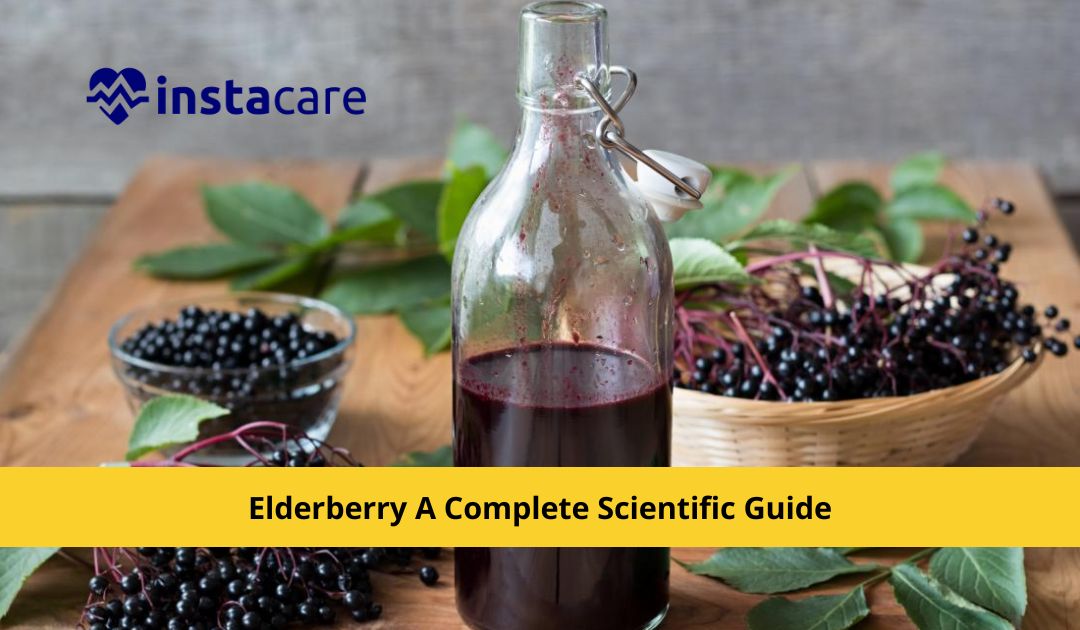Given its numerous health advantages, elderberry, sometimes
referred to as sambucus, has been utilized as a natural treatment for
generations. The science behind elderberries, their origins, nutritional worth,
and potential health benefits, will all be covered in this tutorial.
Globally, elderberries are found in temperate zones and belong to
the Sambucus genus. The therapeutic properties of the Sambucus nigra species
are particularly well-known.
The Origin and Varieties
Exploring the roots of elderberry's story brings us to its origin
and varieties. Native to temperate regions globally, particularly Europe and
North America, elderberries belong to the Sambucus genus.
Botanical Background
Elderberries are widely distributed throughout the world's
temperate zones and are members of the genus Sambucus. Sambucus nigra is the
species most frequently utilized for medicinal purposes.
Varieties of Elderberries
Elderberries showcase a diversity of varieties, with the European
elderberry (Sambucus nigra) and the American elderberry (Sambucus canadensis)
taking center stage. Each variety possesses distinctive qualities and dietary
profiles, offering a unique flavor palette and nutritional composition.
Exploring the intricacies of these varieties not only enhances culinary
experiences but also underscores the rich tapestry of benefits that
elderberries bring to the table, making them a versatile and enriching addition
to a balanced diet.
Nutritional Composition
Several crucial components of elderberries are critical to health
when they are examined in terms of their nutritional content. There are many
mineral and vitamin components in elderberries, including potassium, iron, and
powerful forms of vitamins C and A, which make them nutrient-packed superfoods.
These fruits are unique in that they contain antioxidants like
quercetin and anthocyanins. In addition to being a tasty diet addition,
elderberries are viewed as powerful tools for preventing oxidative stress and
enhancing health.
Micronutrients
Elderberries are a nutritional powerhouse, brimming with essential
vitamins, including
- Vitamin C
- Vitamin A
- Alongside vital minerals such as potassium and iron.
- This nutrient-rich composition not only promotes overall well-being
but also provides robust support to the immune system
- Fortifying the body against various health challenges.
Antioxidant Content
- Elderberries stand out for their robust antioxidant content,
featuring essential flavonoids like quercetin and anthocyanins.
- These compounds play an essential role in the body's protection
against inflammation and oxidative stress.
- By neutralizing free radicals, elderberries contribute to
maintaining cellular health, highlighting their significance in promoting
overall well-being and resilience against various health challenges.
Health Benefits
Embarking on the exploration of health benefits, elderberries
emerge as natural allies in well-being. Renowned for their immune-boosting
prowess, studies suggest elderberries may shorten colds and flu durations. With
potential cardiovascular advantages and anti-inflammatory effects, these
berries offer a holistic approach to health, enriching our lives in diverse
ways.
Immune System Support
Elderberries have gained popularity for their immune-boosting
properties.
Heart Health
The anthocyanins present in elderberries may contribute to
cardiovascular health by promoting healthy blood circulation and reducing the
risk of heart-related issues.
Anti-Inflammation Effects
Elderberries contain anti-inflammation compounds that may help
alleviate symptoms associated with inflammatory conditions, making them a
potential natural remedy for conditions like arthritis.
Cooking with Elderberries
A fruit with many uses, elderberries can be added to a variety of
delicious recipes. They can be utilized in
- Jams and syrups
- Soak them in fragrant teas
- Or add their unique flavor to mouthwatering sweets.
Precautions and Considerations
Navigating the land of elderberry consumption requires awareness
and precautions. While elderberries offer numerous benefits, it's essential to
exercise caution. This section explores crucial protections and thoughts,
highlighting potential side effects, the importance of moderation, and the
significance of seeking professional advice, especially for individuals with
specific health conditions or during pregnancy.
Potential Side Effects
Enjoying the health benefits of elderberries comes with a crucial
warning—moderation is key. Excessive consumption may yield mild side effects, underscoring
the importance of mindful intake. Furthermore, it's vital to exercise caution
with certain parts of the plant, particularly leaves and stems, which can be
toxic if improperly processed. Navigating the goodness of elderberries demands
a balanced approach, ensuring their incorporation into a healthy lifestyle
without compromising well-being.
Consulting with a Healthcare Professional
Before incorporating elderberries into your routine, especially if
you have existing health conditions or are pregnant, consulting with a
healthcare professional is advisable to ensure it aligns with your individual
health needs.
Conclusion
In conclusion, elderberries emerge as an attractive natural remedy, soaked in history and loaded with diverse health benefits. From boosting the immune system to supporting heart health, their nutritional richness deems them a valuable asset in maintaining a well-balanced diet. However, approaching their consumption with awareness is crucial. When doubts arise, seeking guidance from healthcare professionals ensures a safe embrace of the goodness of elderberries, unlocking their potential for a healthier and happier life.

